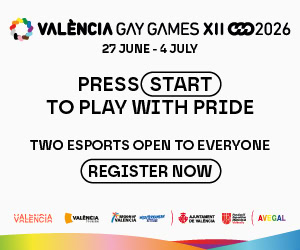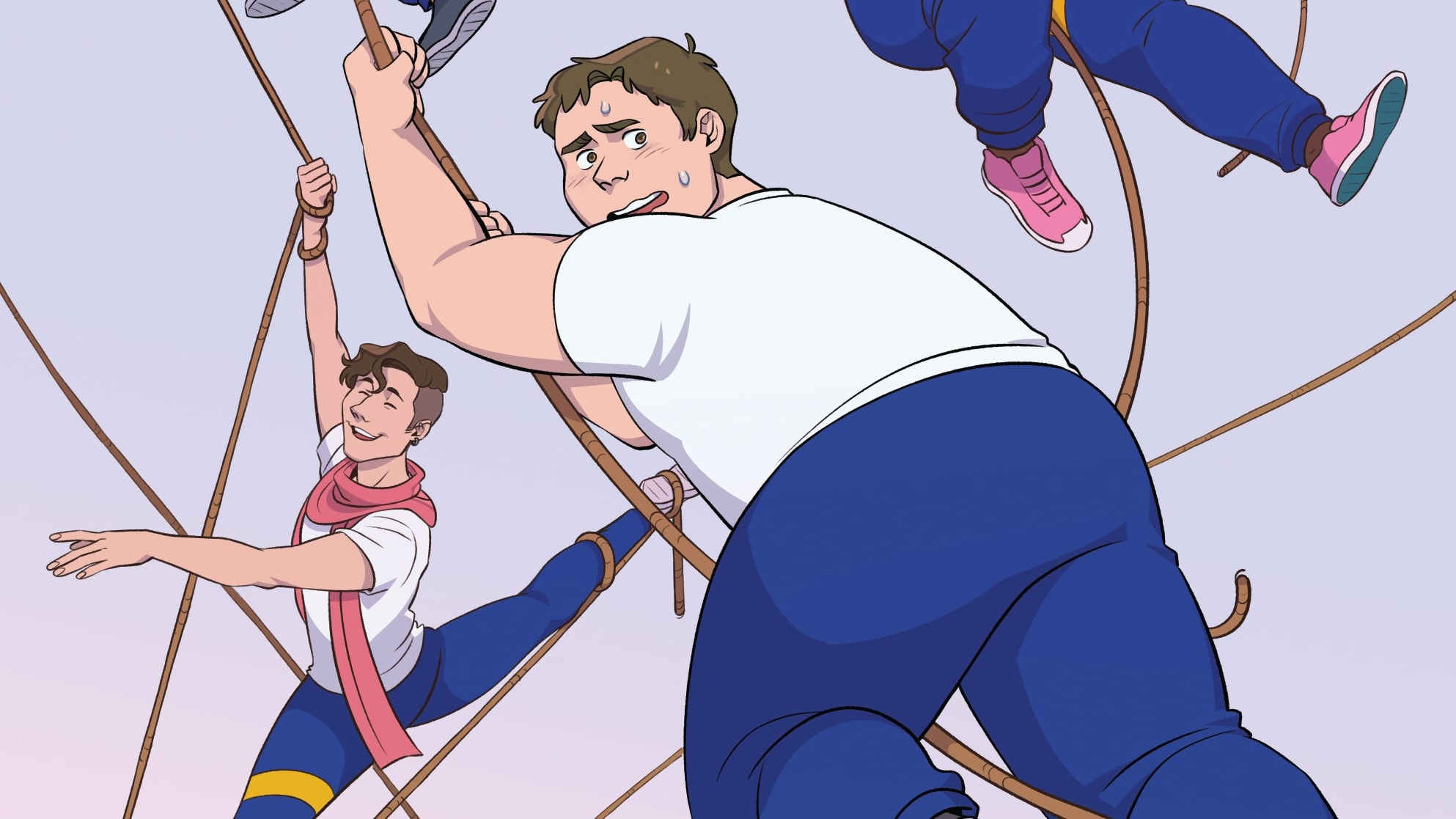
Comics Corner – ‘Love and War’ tugs at the heartstrings
Tug-of-war isn’t just a playground game or staple of track and field days at school – it’s an internationally governed sport with origins dating back to at least Ancient Egypt, and with variations found all around the world. In Love and War, it’s also the background to a beautifully realised queer love story that promises plenty of back and forth for its emotionally fraught teen protagonists.
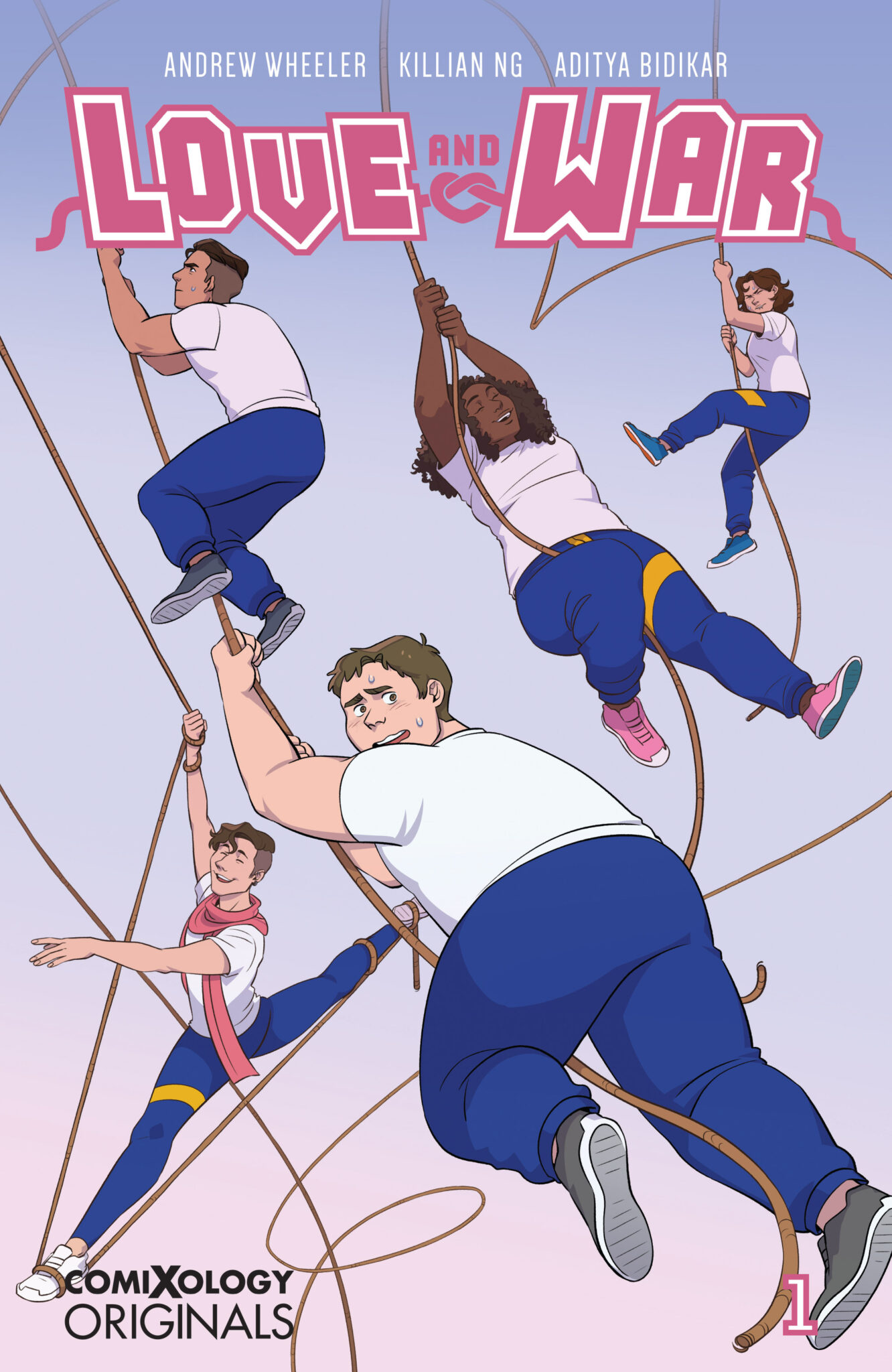
Written by Andrew Wheeler, with art by Killian Ng, Love and War follows Dominic “Domo” Novak, a member of the tug-of-war team at Aster Academy. Perennial runners-up, the team came second to their arch rivals at Kingdom College at the end of the last season, but Domo may have won an even better prize than sporting glory – the affections of his teammate Gabriel, who kissed him in the locker room after the finals.
Unfortunately, young love didn’t have chance to bloom, as Gabe travelled overseas for the summer holidays, and Domo hasn’t heard from him since. As the series opens, it’s the beginning of a new school year, and Domo is eager to get back to the team and find out where he stands with Gabe. The only problem? Gabe has left Aster Academy, and no-one knows why.
Complicating matters is that in Gabe’s absence, Domo is up for the role of team captain, a job he’s not even sure he wants. Worse, the team’s coach is pitting him against fellow squad mate Jocasta for the position – girlfriend to his best friend Vanessa “Nessa” Howell. Safe to say, Domo’s head and heart are being pulled in multiple directions – and that’s before he meets Emil Vargas, a new student at Aster, a trained ballet dancer, and a total dreamboat.
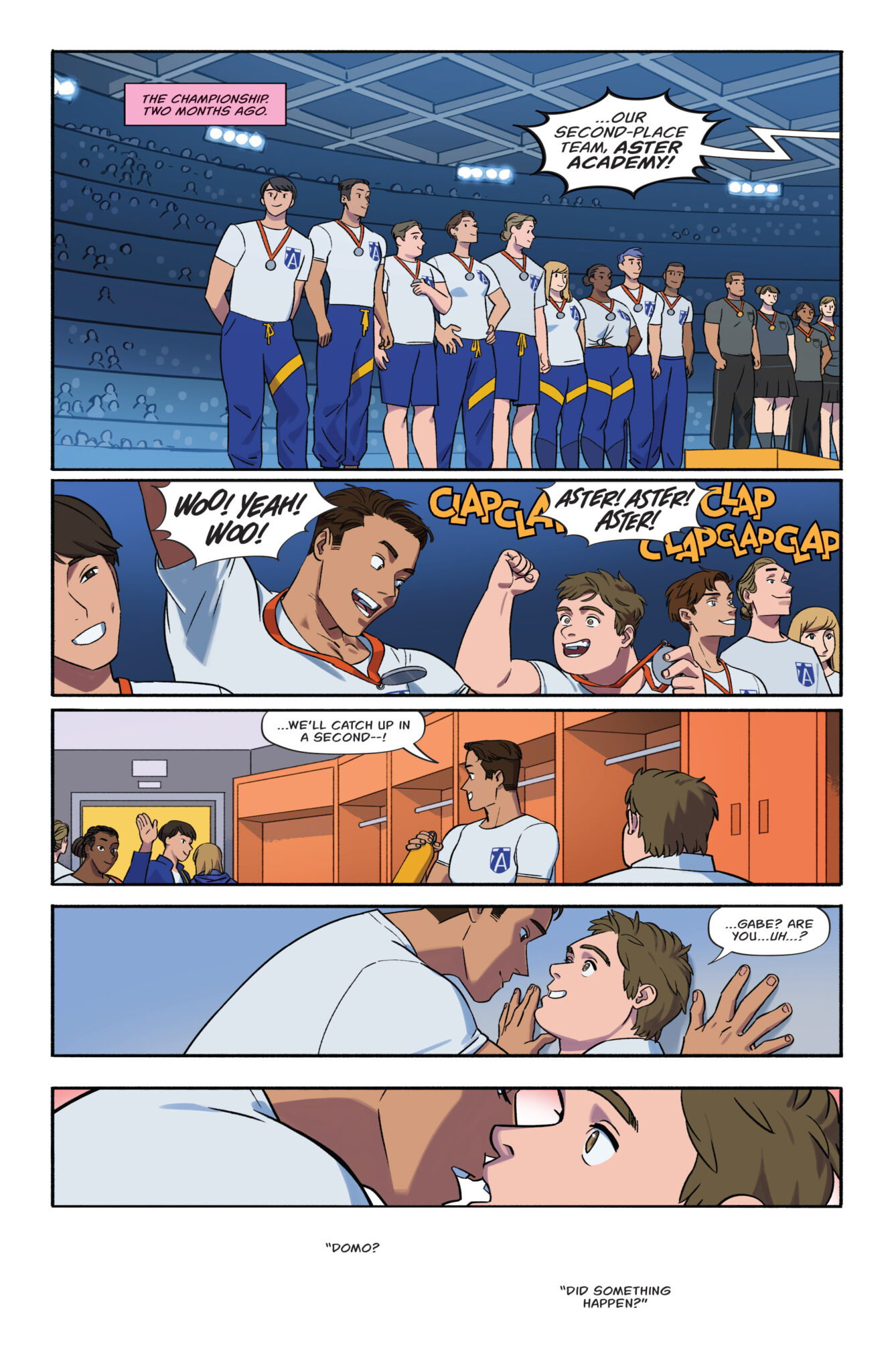
Love and War seems heavily influenced by sports manga, the kind where the focus sport is the biggest deal in the world – even if it’s something that’s as relatively obscure in the real world as tug-of-war. Aster’s Coach Toth lectures the team that there is “no greater nor more noble sport”, while the rivalry between Aster Academy and Kingdom College is presented as bitter and brutal, almost melodramatically over the top. Domo even refers to Kingdom as “the bad guys” and “evil”, while giving Emil a tour.
More than anything though, Love and War feels like a love letter to shoujo and romance manga. The melodrama is baked into the cast’s relationships, with heightened emotions, unspoken feelings, schemes, and betrayals peppering almost every page.
There’s also a somewhat otherworldly feel to the series, with the setting – the fictional Rosecastle, described as “a city of poets and soldiers, romantics and revolutionaries, lovers and fighters” – having an almost mystical air to it. Ng’s art conveys this through regular use of flowers and sparkles, and architecture that evokes grand castles and features mythical creatures in statues. Even though there’s no actual sorcery involved, both Rosecastle and Aster feel vaguely dream-like; a non-magical magical school in a fairy tale town.
The closest comparison, strangely enough, might be the classic anime series Revolutionary Girl Utena. Released in 1997, the series was a surrealist twist on the magical girl genre, one that also focused on students engaging in duels and featured strong queer representation. While everything about Love and War is firmly rooted in the everyday world, unlike Utena (so far, at least, no-one has pulled a magical sword out of anyone’s chest), there’s definitely a similar tone to the proceedings.
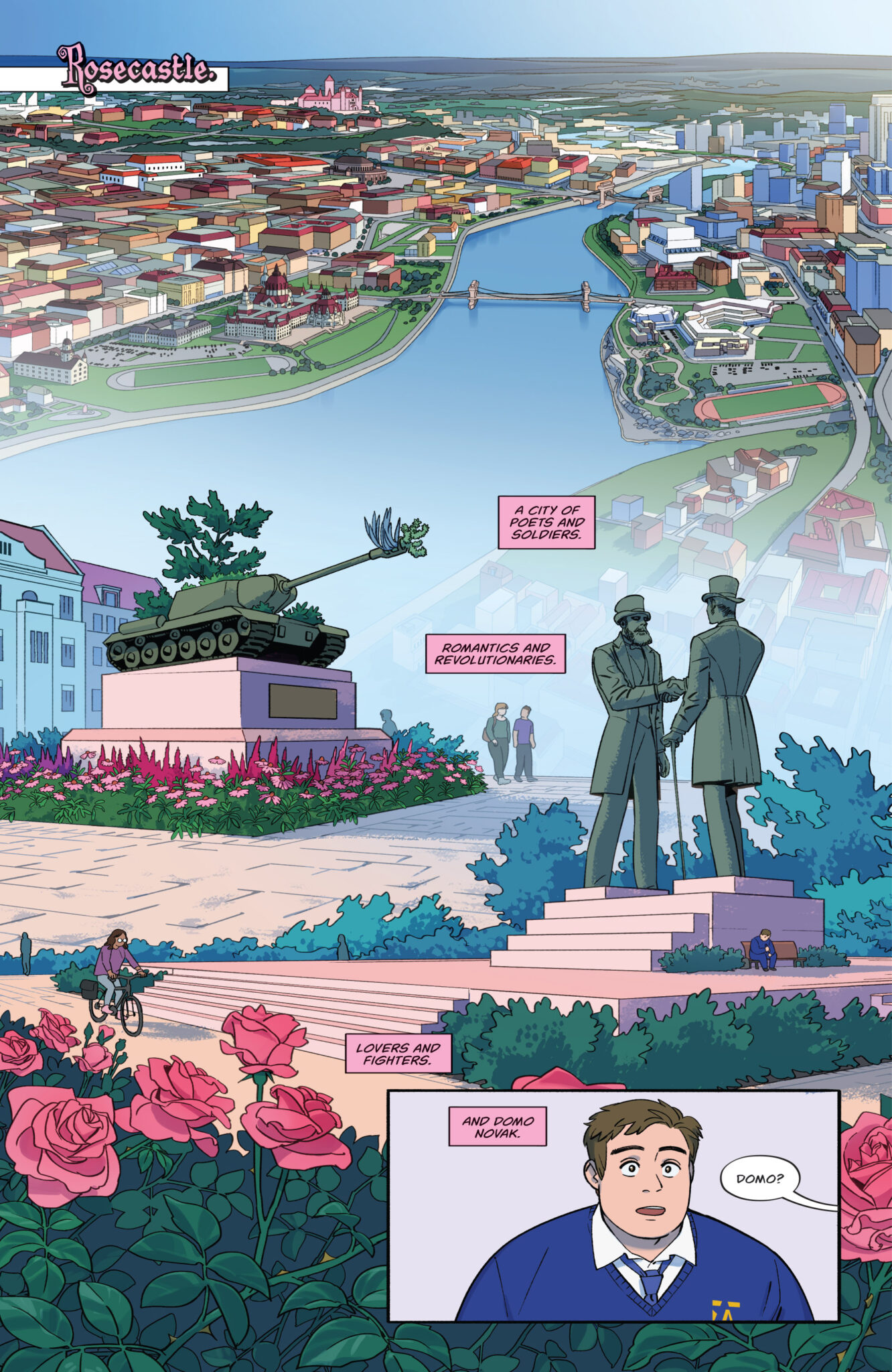
While tug-of-war may be an unexpected sport for the series to be centred on, it also provides a perfect framework for Love and War’s other great strength – some of the best body positivity to grace a comic in years. The sport favours mass and strength, and players can have diverse body types, with Wheeler and Ng giving both of their most prominent characters big, beautiful bodies.
Domo is short and heavy-set, and plays as the anchor on the team (helpfully, editorial notes explain some of the formal rules of tug-of-war, including that anchors are the last pullers in a team’s line-up, and usually one of the heaviest), while Nessa is also big-bodied, with broad shoulders and thick thighs. Yet both are presented as healthy (they’re sportspeople!), attractive, and desirable – Nessa has her seemingly long-term relationship with Jocasta, while Domo has not only his unrealised connection with Gabe to consider, but also immediately attracts the eye of Emil, who practically swoons over him. Such positive representation both defies convention for the depiction of athletes, and is a hugely important move for teen characters and readers alike.
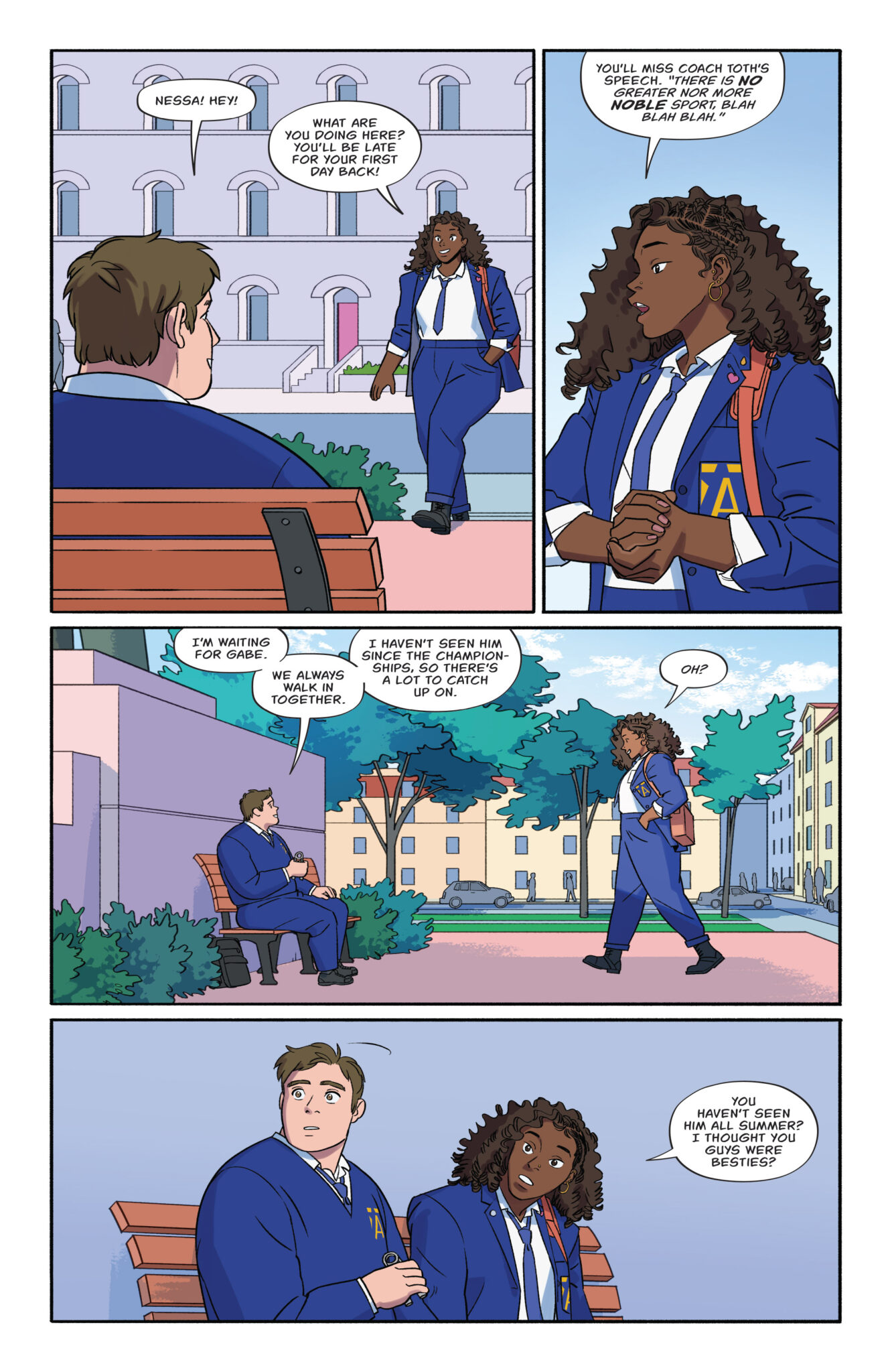
With the series being published as digital single issues through comiXology/Amazon (ahead of a collected edition in print in September 2022, through Dark Horse Comics), Love and War #1 sets up enough engaging plot threads and tantalising romantic drama to keep readers coming back month after month. The love triangle brewing between Domo, Gabe, and Emil is both immediately adorable and feels like it will have some heavy emotional pay-off.
The series also seems to be laying the groundwork to live up to the adage it takes its name from (as in, “all’s fair in…”), with Jocasta’s competitiveness for the team captaincy immediately turning Domo into an enemy in her eyes – a ruthlessness that already seems to be impacting her own relationship with Nessa in this issue, setting them on a more fractious and dramatic course. However each thread plays out, the fact that every key relationship in the comic is LGBTQ+ focused is simply a delight.
While tug-of-war remains an unlikely sport to spotlight (although it is, of course, the perfect metaphor for the emotional back-and-forth that’s sure to come), like all the best sports manga, Love and War isn’t really about the sport itself. It’s really about the characters, their bonds, and how they relate and compete with each other. In that sense, this is already up there with some of the best of the genre, and if Wheeler, Ng, and company continue the quality for the rest of the series, Love and War is sure to be a winner.
Love and War is published digitally as a Comixology Original, available here.

